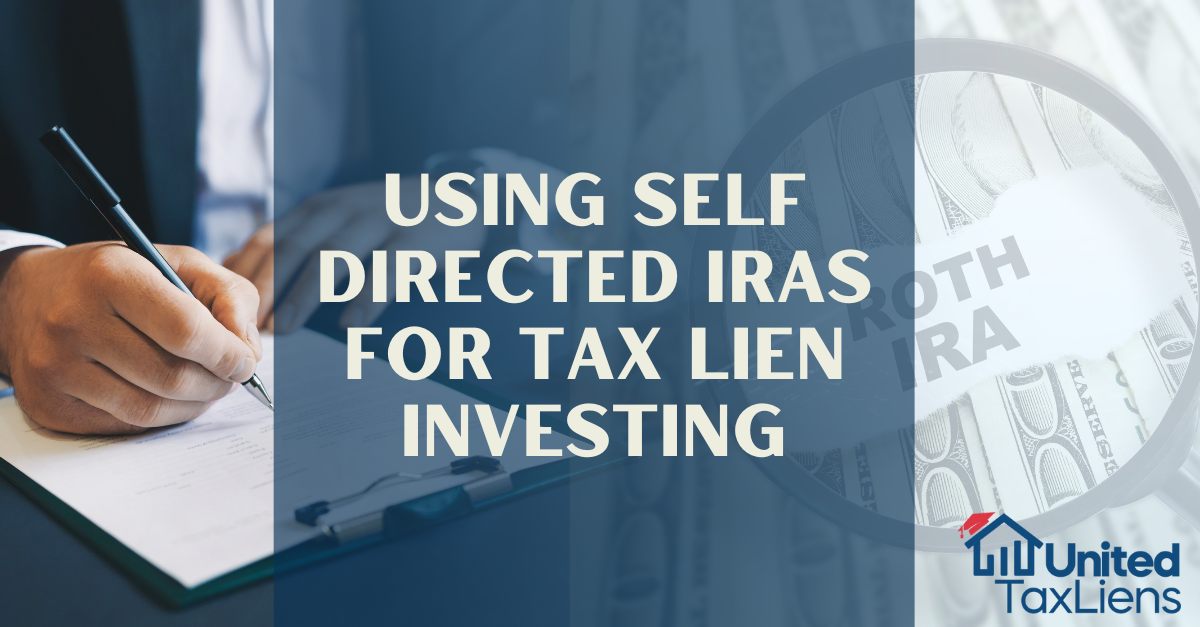When it comes to funding your tax lien investments, most people think about personal savings, business credit, or maybe partnering with other investors. But there's another option that doesn't get talked about as much—using your retirement funds through what's called a self-directed IRA.
This isn't your typical IRA that limits you to stocks, bonds, and mutual funds. A self-directed IRA (SDIRA) opens up possibilities for alternative investments, including tax liens and tax deeds. And the potential benefits? Your tax lien returns could grow either tax-deferred or completely tax-free, depending on how you set things up.
The Two Paths: Traditional vs. Roth
With a Traditional SDIRA, you're using pre-tax dollars to make your tax lien investments. That means you get a tax deduction for your contributions today, and all the interest and returns from your liens grow without immediate tax consequences. You'll pay taxes later when you start taking distributions in retirement—hopefully when you're in a lower tax bracket.
The Roth SDIRA works differently. You're investing after-tax dollars, so no immediate deduction, but here's the kicker—all your future growth is tax-free. Imagine earning, say, 12% annually on tax liens for 20 years, and never paying a dime in taxes on those gains. For someone in their 30s or 40s, that could add up to serious money.
The Compounding Effect
One of the biggest advantages of using an SDIRA for tax lien investing is what happens to your earnings. In a regular taxable account, you'd pay taxes on your tax lien interest every year, which eats into what you can reinvest. But inside an SDIRA, every dollar you earn can go right back into new investments.
Let's say you earn $5,000 in tax lien interest. In a taxable account, you might only have $3,500 left to reinvest after taxes. In an SDIRA, you get to reinvest the full $5,000. Over time, that difference compounds into something much more significant.
What You Need to Know About the Rules
Here's where things get a bit more complex. The IRS has strict rules about what you can and can't do with SDIRA investments, and breaking them can cost you big time—potentially losing the tax-advantaged status of your entire account.
The main thing to understand is that you can't use SDIRA investments for personal benefit while they're still in the account. So if your tax lien ends up foreclosing and you acquire a property, you can't live in it, vacation there, or rent it to family members. It has to remain a pure investment until you either sell it or take it as a distribution from your IRA.
There are also rules about who you can do business with—generally, you can't buy liens on properties owned by you, your spouse, your kids, or certain business partners. And you can't use personal funds to improve properties that your SDIRA owns.
The rules can get pretty detailed, which is why most people work with custodians who specialize in self-directed accounts and understand these restrictions.
The Custodian Piece
Unlike traditional IRAs where your broker handles everything, SDIRAs require custodians who can manage alternative investments. Not every IRA custodian can handle real estate or tax liens, so you'll need to find one that specializes in this area.
The custodian essentially holds legal title to your tax liens on behalf of your IRA and handles all the paperwork. You still direct the investments—deciding which liens to buy, when to sell, and so on—but everything has to flow through them to maintain compliance.
Is This Strategy Right for Everyone?
Honestly, probably not. Using an SDIRA for tax lien investing works best for people who are already comfortable with tax liens, understand the basics of how retirement accounts work, and have enough investment capital to make the additional complexity worthwhile.
There are fees involved—custodian fees, transaction fees, and sometimes setup costs. For smaller investment amounts, these fees might eat into your returns enough to make the tax benefits less attractive.
But for investors who are serious about tax liens and looking for ways to grow their retirement wealth more aggressively, it's definitely worth understanding as an option.
Getting Started
If this sounds interesting, the first step is usually talking to a custodian who specializes in self-directed accounts. They can walk you through the setup process, explain the specific rules, and help you understand whether it makes sense for your situation.
You'll also want to get comfortable with the tax lien markets you're considering, since the SDIRA adds a layer of complexity to transactions that are already pretty specialized.
The Bottom Line
Using a self-directed IRA for tax lien investing isn't a magic bullet, but it can be a powerful tool for the right investor. The combination of tax lien returns and tax-advantaged growth has the potential to significantly boost long-term wealth building.
Like any investment strategy, though, it comes with its own set of rules, costs, and considerations. The key is understanding what you're getting into and making sure it aligns with your overall financial goals and risk tolerance.
Whether you're exploring this option or any other funding strategy for tax lien investing, the most important thing is to educate yourself thoroughly. Organizations like United Tax Liens and affiliates offer education on this and other funding opportunities, helping investors understand their options and make informed decisions about building their tax lien portfolios.
At the end of the day, the best funding strategy is the one that fits your situation and helps you invest confidently and sustainably for the long term.
This blog is for informational purposes only and should not be relied upon as financial or investment advice. Real estate investing carries risks, and individual results will vary. Always consult with your team of professionals before making investment decisions. The authors and distributors of this material are not liable for any losses or damages that may occur as a result of relying on this information.



